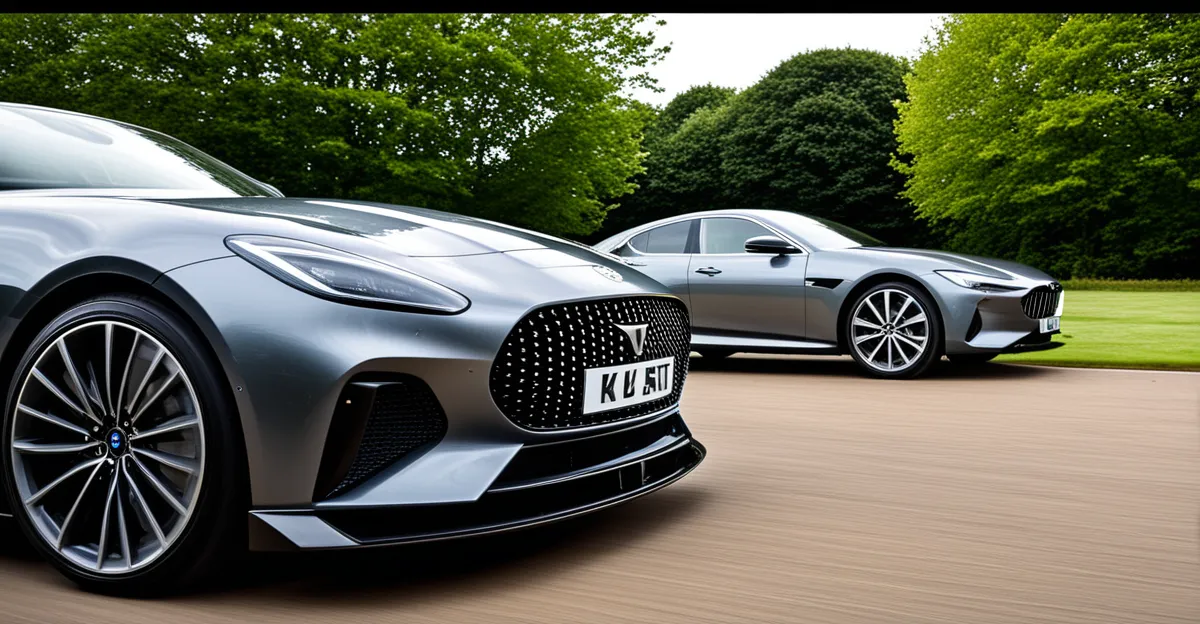Key Innovations Shaping the UK Automotive Design Sector
The UK automotive design landscape is currently undergoing transformative change, driven by breakthroughs that redefine industry standards. Central to these innovations are advancements in electric and hybrid powertrains, addressing the growing demand for sustainable and efficient vehicles. Cutting-edge battery technology developments enhance EV ranges and charging times, supporting the UK’s ambition to lead global automotive innovation.
Simultaneously, UK designers are integrating connected vehicle technologies, enabling seamless communication between cars, infrastructure, and users. This convergence of connectivity and AI elevates vehicle functionality and safety, aligning UK automotive design with international technological progress. IoT-driven features, such as predictive maintenance and real-time navigation, are increasingly incorporated in new models, reflecting evolving consumer expectations.
In parallel : What role does technology play in modern UK car manufacturing?
Additionally, industry trends stress the importance of sustainability — from the adoption of recyclable materials to circular design principles. These efforts not only comply with stringent UK regulations but also promote eco-friendly vehicles that minimize environmental impact. Innovations here are both a response to regulatory pressure and a reflection of consumer priorities.
Overall, the UK automotive design sector’s pioneering spirit and embrace of these key innovations ensure its continued relevance and competitiveness on the global stage.
Also to read : What Factors Are Driving Innovation in the UK Automotive Sector?
Advanced Technologies Driving Design Evolution
The integration of automotive technology such as AI, connectivity, and IoT is revolutionizing UK automotive design. Connected vehicles now harness artificial intelligence to enhance safety, performance, and user experience. For instance, AI-powered systems analyze real-time data to optimize navigation and predict maintenance needs, reducing downtime and improving reliability.
Automation plays a crucial role in streamlining workflows from concept to production. Robotic systems and digital twins enable rapid prototyping and precise assembly, accelerating the development timeline while maintaining high quality. This synergy between human expertise and automation fosters innovation and efficiency within the UK automotive industry.
Leading UK manufacturers exemplify this technological shift. Companies like Jaguar Land Rover and McLaren Automotive utilize advanced connectivity and AI in their designs, showcasing how cutting-edge automotive technology aligns with global industry trends. Their work illustrates the practical benefits of these innovations, such as improved driver assistance and vehicle-to-infrastructure communication.
In summary, advancements in connectivity, AI, and automation are integral to evolving the UK automotive sector. They not only improve vehicle capabilities but also streamline industry processes, reinforcing the UK’s position as a leader in automotive innovation.
Electric, Hybrid, and Alternative Powertrain Breakthroughs
The surge in electric vehicles UK design represents a cornerstone of the country’s innovation in automotive technology. UK manufacturers increasingly focus on hybrid technology and purely electric drivetrains, meeting rising consumer demand and stringent emission regulations. These advances have accelerated the replacement of traditional combustion engines with cleaner alternatives, supporting the sector’s sustainable future.
Breakthroughs in battery technology are pivotal. Enhanced energy density and faster charging capabilities extend driving range and reduce downtime, crucial for wider EV adoption. Innovations like solid-state batteries and improved lithium-ion cells are under development, with UK research institutions playing influential roles. Additionally, expansion of national charging infrastructure facilitates convenience for drivers, making electric mobility more accessible.
Alternative powertrains, including hydrogen fuel cells and plug-in hybrids, diversify options, ensuring resilience and flexibility aligned with global industry trends. UK startups and established firms both contribute to refining these technologies, embedding the UK at the vanguard of EV innovation.
This focus on alternative powertrains fortifies the UK automotive design landscape, enabling it to integrate sustainability with high performance, market relevance, and compliance with evolving environmental standards.



